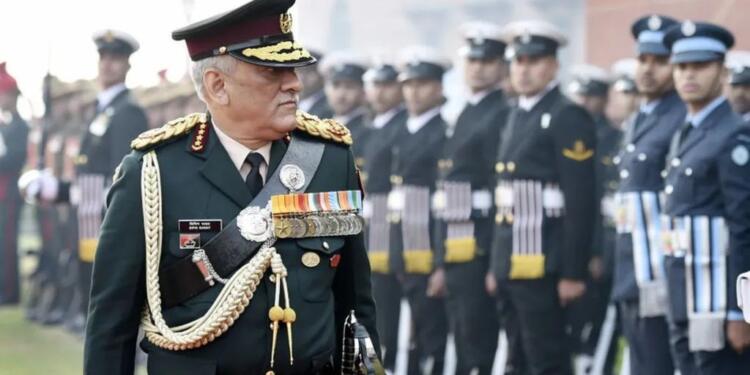The tragic helicopter crash in Coonoor, Tamil Nadu, on December 8, 2021, claimed the life of CDS Bipin Rawat, one of India’s most illustrious military leaders. He served as the first Chief of Defense Staff of India. Along with his wife, Madhulika Rawat, and twelve other members of his staff, General Rawat was taken from us much too soon. The shock and grief following his death sent ripples across the nation, leaving an indelible void in India’s defense leadership. As we commemorate the anniversary of his passing, we honor CDS Rawat for his remarkable military service as well as the influence he had on the country as a whole.
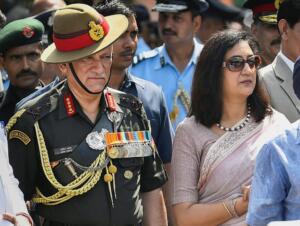
A Life Dedicated to Service
Born on 16th March 1958 in Pauri, Uttarakhand, CDS Bipin Rawat hails from a family with a rich armed forces background. His early life was shaped by strong characters and patriotism instilled in his childhood by his father himself, Lieutenant General Laxman Singh Rawat, being an Indian Army officer; one can well imagine how Bipin Rawat’s very temperament, the course his life took, and his eventual commitment to serve his motherland were all shaped to bring him to this position.
In 1978, General Rawat got his commission in the Indian Military Academy (IMA) after completing his early schooling in Dehradun. He was into a career of national service and defense.
He then joined the 5th Battalion of the 11 Gorkha Rifles, an outfit known for its indomitable spirit and cheerful boldness. Right from the very beginning, Bipin Rawat proved himself as an exemplary leader and, at breakneck speed, went up in the rank in the Indian Army.
For his service, Rawat earned numerous military decorations, including the Param Vishisht Seva Medal, Uttam Yudh Seva Medal, Ati Vishisht Seva Medal, and the Yudh Seva Medal.
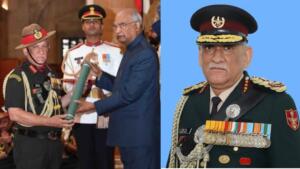
Frontline Leadership
During his long and distinguished career, General Rawat reflected the qualities of tactical brilliance, operational foresight, and resolute courage that had earned him respect from both peers and superiors. His leadership traversed the cold, rugged terrain of Jammu and Kashmir to the dense forests of the Northeast, where he led several counter-insurgency operations that have become milestones in the history of India’s defense forces.
It was one of his landmark career events when he became the commander of the multinational brigade of the Democratic Republic of Congo in 2008. He turned a laggard mission into an incredibly effective one. Some of his decisive actions, for instance, the strategic employment of assault helicopters to pinpoint rebel positions, helped put order and protect civilians from the violence that had gripped this place. This was when Rawat’s reputation as an unrivaled leader was cemented and his leadership style—which combines strategic vision with a resolve to act decisively—became widely acknowledged.
Pivotal Operations and National Security
His various prominent operations to save Indian National security have brought forward Rawat’s excellent strategic power within the military ranks. Such operations include the line of 2015 that involved the killing of militant NSCN-K based within Myanmar. Such events confirmed that CDS Rawat thinks it is right for aggression and proactive work even on national threats. His planning and execution of surgical strikes in 2016 at terrorist camps in Pakistan-occupied Kashmir made his commitment to the defense of India against all external threats very vivid.
CDS Rawat was COAS from 2016, and during this time he demonstrated leadership as the country confronted many challenges from Pakistan and China. Rawat’s success in handling complicated geopolitical situations and his response to counter both strategic calm and military preparedness won him tremendous adoration.
Strike Surgical (2016)
Following the September 2016 terrorist attack on an Indian Army base in Uri, Jammu & Kashmir, the Indian Army destroyed terrorist launchpads by executing a surgical operation across the Line of Control (LoC). The operation was planned and carried out in large part by General Rawat, who was the Vice Chief of Army Staff at the time.
Doklam Standoff (2017)
His display of resolution in defending India’s territorial integrity had come in the form of the Doklam crisis when the forces of India and China had faced each other at the tri-junction of India, Bhutan, and China in 2017. Chinese and Indian military engaged in a confrontation on the Doklam plateau in 2017.
The 2019 Balakot Strike
The Indian Air Force attacked a terrorist training center in Balakot, Pakistan, in February 2019. This was a reaction to the attack on Pulwama, which claimed the lives of forty Indian soldiers. In his capacity as Army Chief, Rawat was instrumental in liaising with the Air Force and offering assistance to guarantee the operation’s success.
Operation All Out: 2017–2019
Under Operation All Out, the Indian Army stepped up its counter-insurgency efforts in Jammu and Kashmir under Rawat’s command. Eliminating terrorists and their infrastructure required a concerted effort. Additionally, this resulted in a notable decrease in terrorist activity within the area.
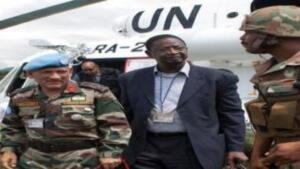
Reforms and Modernization of the Indian Army
Perhaps his greatest legacy while serving is his attempt to modernize the Indian Army. He acted as COAS in strengthening the ‘operational readiness’ of the army; he was more keen and ambitious enough in reshuffling the structure of the Army, and, hence, removing the inefficiency in administration, which will help form a unifying element with agility in a mighty military force.
This modernization encouraged the procurement of high technology for the defense forces, be it assault rifles to high-tech artillery systems. He also emphasized that since it was the nation’s military forces, it was essential that the Indian Army remain ahead in the curve of trends of defense technology from across the world and yet hold onto those very fundamental values—discipline, courage, and unwavering loyalty to the nation—which had been so integral to its success.
A Visionary as the Chief of Defence Staff
With General Bipin Rawat as the first Chief of Defence Staff since 2020, it was actually a history in India’s military life. With the appointment, the aim behind getting greater synergy and coordination among the Indian Army, Navy, and Air Force was served. The first person to hold this office, CDS Rawat, worked day and night to integrate the three services and create a more cohesive military force. His tenure as CDS was characterized by his unrelenting vision to streamline the defense apparatus and enhance the operational effectiveness of the entire Indian military.
His leadership as CDS has focused on long-term military planning and integration. As he realized the need for long-term military planning, he worked hard to strengthen India’s defenses and make India a prominent force in the region. Through his efforts in modernizing defense strategy and procurement, focusing on efficacy and prospective threats, he displayed a long-term ability to foresee India’s security needs.
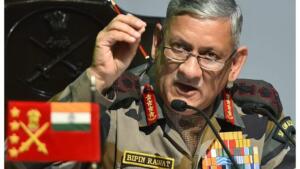
Legacy and Effect on the Indian Military
CDS Rawat left behind a vast legacy. His vision of a modern, integrated army capable of addressing a wide range of complex issues has changed India’s security position for years to come.
The Indian Army, Navy, and Air Force started collaborating more closely than ever under his direction, a development that will continue to benefit India’s security.
Besides being operational and strategic, CDS Rawat is a leader. He is a soldier’s general; he knew how to look after his troops, and yet he always pushed them to be at their best. His dedication to service, his care for his soldiers, and the leadership he exemplified have become inspiring virtues for generations of military men and women.
He will be remembered by the Indian Armed Forces and the nation as a whole. We remember General Bipin Rawat’s valor, security-related work, and lasting legacy that this individual will have in the Indian armed forces. He shall set examples of leaders who commanded military forces.
A Legend Empowers Future Generations
In Indian military history, the name of CDS Rawat will always be remembered for his indefatigable patriotism, his astute strategy, and fearless leadership. Apart from inspiring generations of Indian youth and serving as a symbol of sacrifice, discipline, and devotion to the nation, his impact goes beyond the reforms, operations, and national security that he led.
People across the world mourned when General Rawat left us.
PM Narendra Modi paid tribute to General Rawat in a x post.
Gen Bipin Rawat was an outstanding soldier. A true patriot, he greatly contributed to modernising our armed forces and security apparatus. His insights and perspectives on strategic matters were exceptional. His passing away has saddened me deeply. Om Shanti. pic.twitter.com/YOuQvFT7Et
— Narendra Modi (@narendramodi) December 8, 2021
India’s defence minister Rajnath Singh paid homage to the victims in the parliament.
“With profound grief and heavy heart, I stand to convey the unfortunate news of the crash of the military helicopter in the noon of 8 December 2021, with India’s first Chief of Defence Staff, Gen Bipin Rawat on board,” said Mr Rajnath Singh.
















